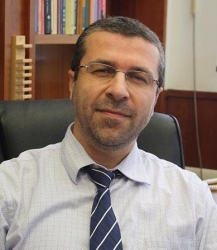Contemporary education should explore and apply the principles of civility and democracy as necessary preconditions for acquiring knowledge of God and the world. Civility is not just an individual quality but the endowment of the learning community. Universities and other learning communities should take responsibility for defending these values.
These values are not just partially lost in contemporary education. In the general social setting and bipartisan politics, today’s situation is not very promising. Peter Whener, in his research The Death of Politics: How to Heal Our Frayed Republic After Trump, claims that in our distorted views of political realities and values of moderation, compromise, dialogue, and civility are almost a lost art (Whener [2019]: ch. 6, p. 141-188). Some of his suggestions for relearning this lost art include paying attention, listening, showing respect, being agreeable, apologizing, offering constructive criticism, and taking responsibility (Ibid., 182-3). Education at the university level and elsewhere should play an active role in teaching the lost arts of civility and democracy.
John Locke [1693] in Johnson & Reed [2012], (p. 43) meticulously explains how education works. The first and most essential “endowment” of education is virtue. Locke says: “I place virtue as the first and most necessary of those endowments that belong to a man or a gentleman, as absolute requisite to make him valued and beloved by others, acceptable and tolerable to himself.” (Ibid., 44). Furthermore, Locke explains that the virtue of love for the Supreme Being and respect of the Maker are necessary preconditions for loving others and avoiding injustices and selfishness (Ibid.).
Second, the “application of the mind” which has been well trained by virtue is wisdom. “To accustom a child to true notions of things and not to be satisfied till he has them, to raise his mind to great and worthy thoughts and keep him at a distance from falsehood and cunning… is the fittest preparation of a child for wisdom,” elaborates Locke. Wisdom, as we can see, is closely tied to the first principle of a virtuous life.
Third, breeding is based on the modesty and humility principle. Actions are prescribed that will make someone a gentleman or a lady. Sets of habits that Locke defines will help youth to learn “how to behave ourselves towards others” (Ibid., 46). Locke describes this demeanor as “internal civility of the mind” governed by the fashions of the country or context in which we live (Ibid.).
Finally, the process of learning begins for those who understand that it is not enough to become “a bookish man” (Ibid.) The ultimate goal of education is the dynamic development of “good habits” in the appropriate environment (Ibid., 46-7).
Learners today should base their pursuit of truth and knowledge on the principle of active development of character – civility, tolerance, dialogue, and democracy. Our classrooms and online education, especially in higher education, should reflect these values, apply these principles, and create some action steps in a cordial and civil democratic university environment. Universities should be places where teachers and learners have the ability to transcend their personal beliefs and worldviews, and, by utilizing the civil and democratic tools of dialogue, tolerance and respect, become beacons of light for the darkened politics and society today.

